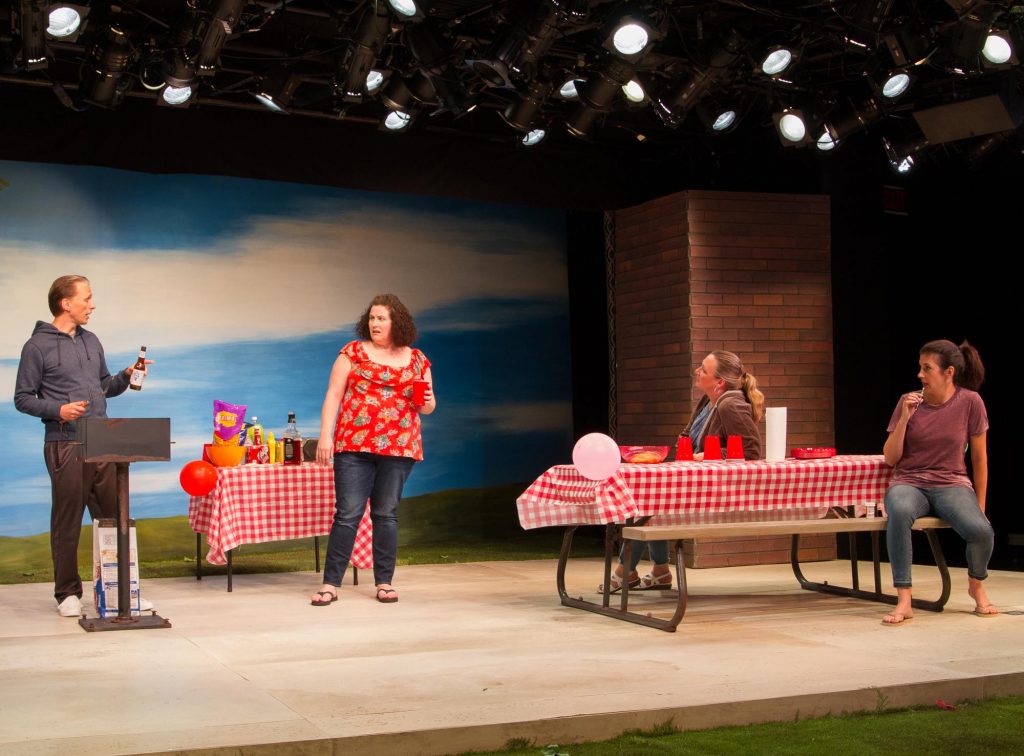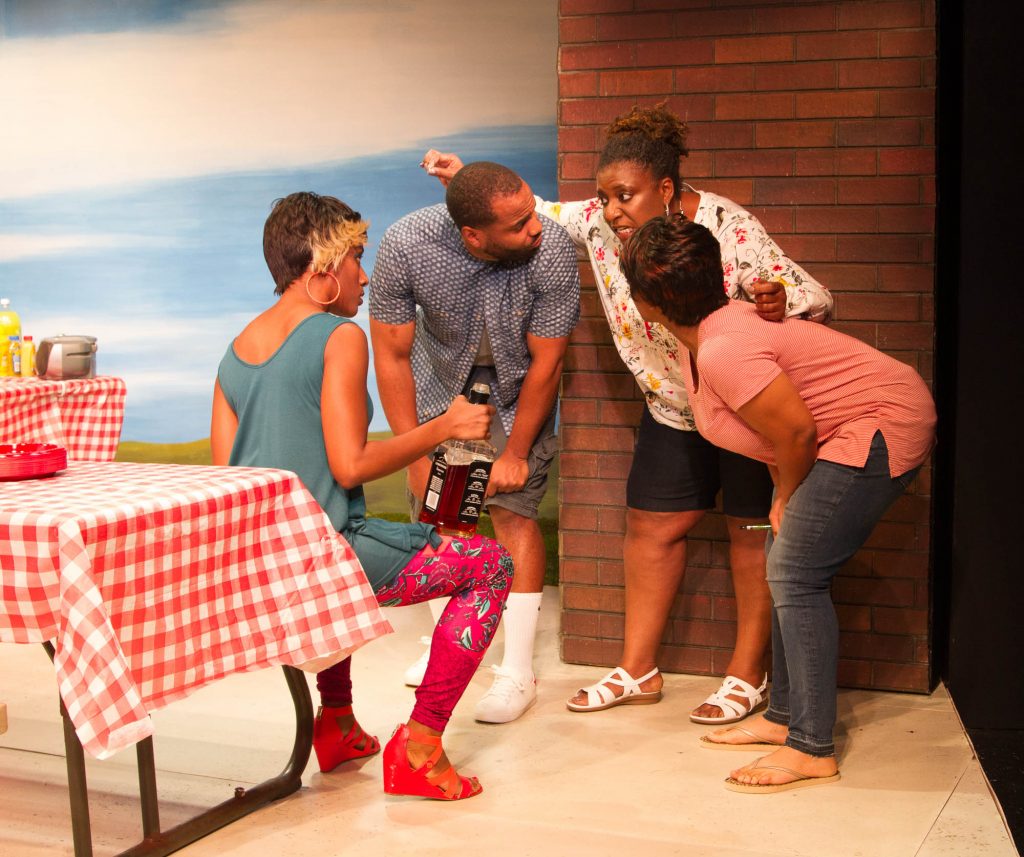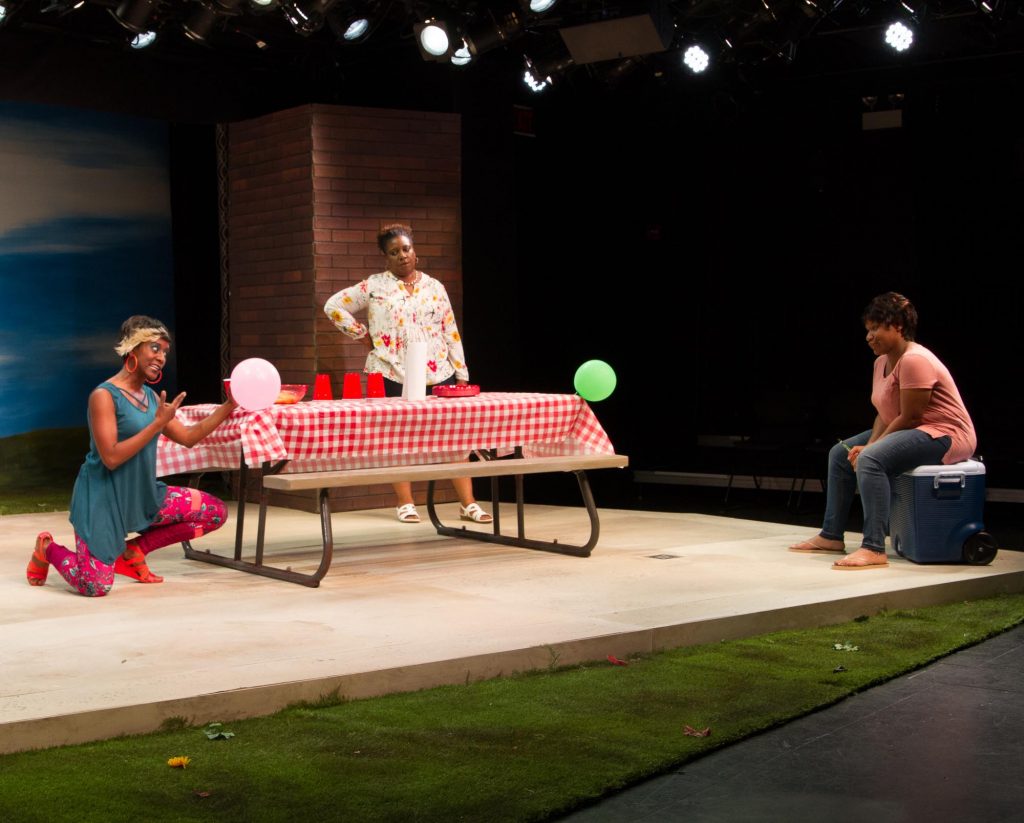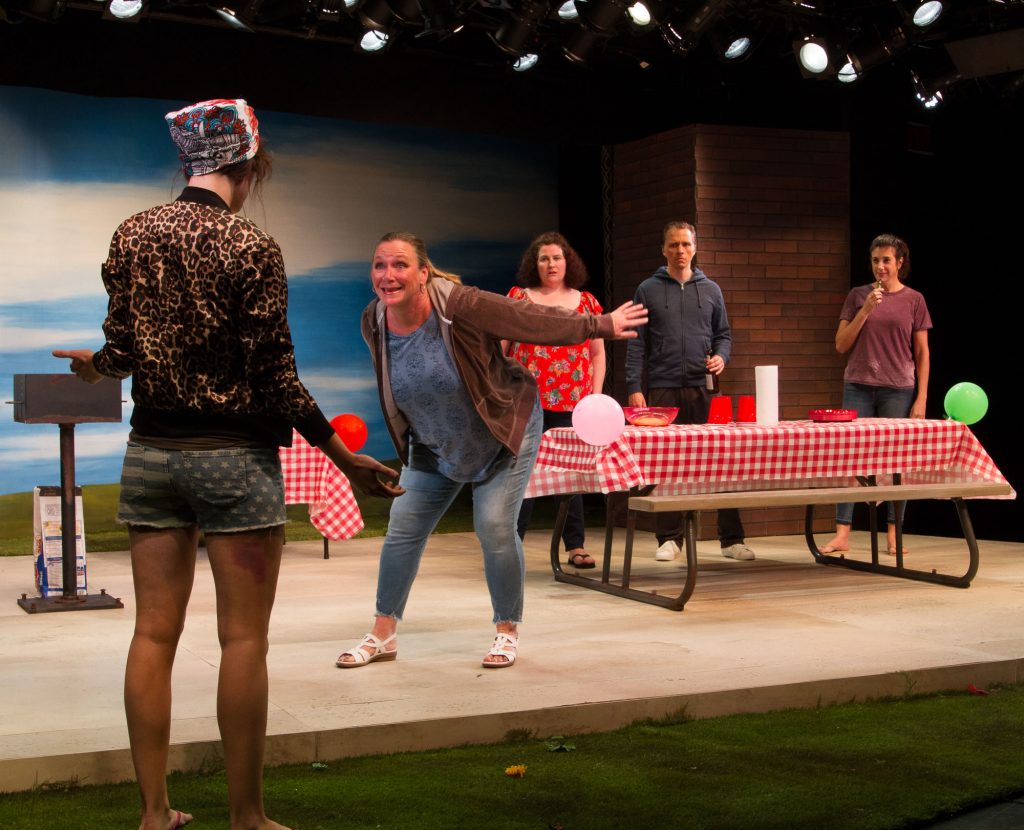UNDERCOOKED AND INNUTRITIOUS
Yes, disruption continues to roil the stage in 2017. Old-fashioned make-believe dwindles into its opposite: dis-illusionment. The latest test case: Robert O’Hara’s determinedly deceptive Barbecue. Its constant joke is on us. This two-act concoction is the kind of treacherous script that puts critics in a bind: To fully expose its sardonic subterfuge, we’d have to go beyond spoilers to give away the prevaricating plot. The playwright has tied our hands: From fear of pooping on his party we’re prevented from alerting the public to the plays he scams. Ugh.
A Chicago premiere at Steppenwolf’s 1700 Theatre by a designated “lookout visiting company,” Strawdog Theatre Company’s Barbecue takes wide and sometimes witty swipes at its many butts: “reality” TV; family dysfunction (a topic that will not die); white domination of Oscar nominees; mendacious writers who invent their own sob/success stories; and movie superstars who turn other people’s pain—real or imagined—into vehicles for careers. This vague statement of themes and intentions can’t get more specific. In Barbecue life imitates art just when you want it the other way altogether.
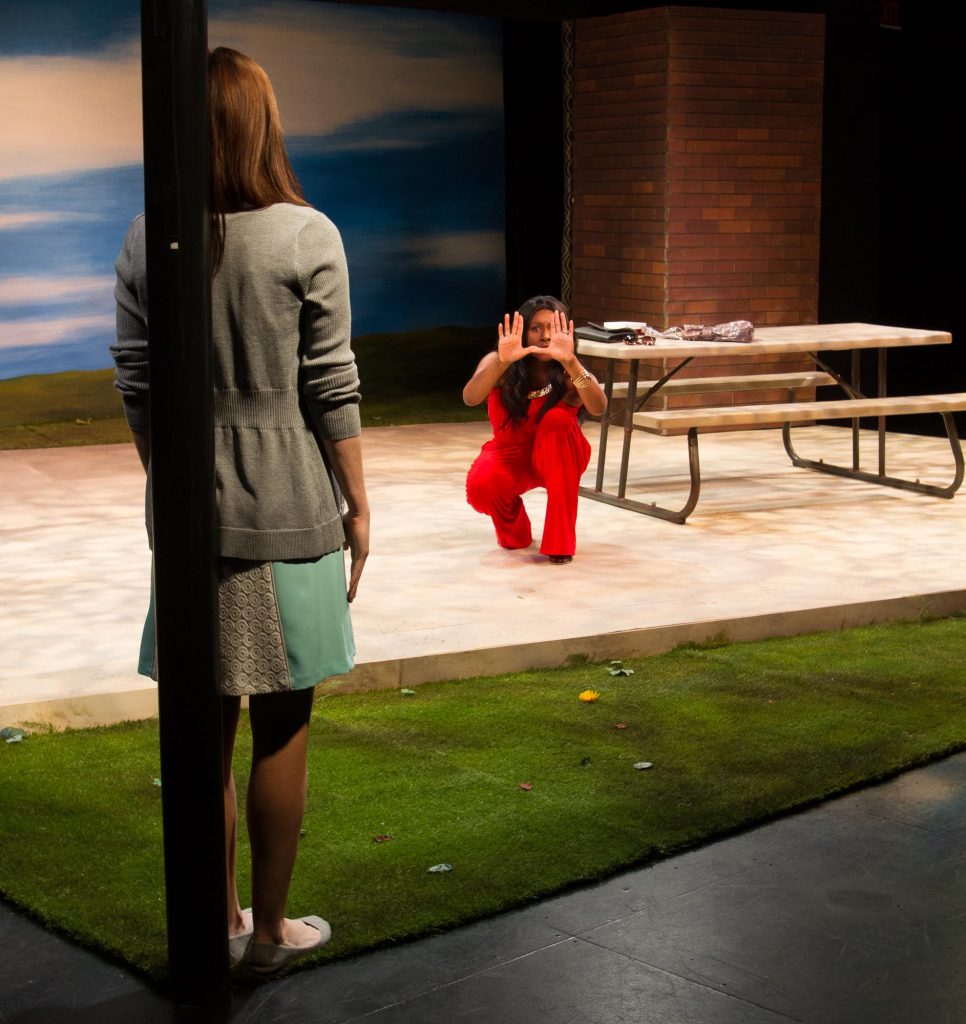 Let’s just say that in the first act we’re presented with two versions (white and black) of a domestic crisis incredibly like the documented ones in A&E’s popular Intervention series. Each episode is filled with an almost patented mélange of shaming, blaming the victim, recriminations, “Achilles heel” fighting, tough love, toxic gossip, scurrilous accusations, and sorrowful sentiment. I watch it every week.
Let’s just say that in the first act we’re presented with two versions (white and black) of a domestic crisis incredibly like the documented ones in A&E’s popular Intervention series. Each episode is filled with an almost patented mélange of shaming, blaming the victim, recriminations, “Achilles heel” fighting, tough love, toxic gossip, scurrilous accusations, and sorrowful sentiment. I watch it every week.
Here the setting is a park where the five O’Mallery siblings are holding a putative barbecue that’s really a family reunion from hell. The real purpose of the three sisters and one brother is not to eat (that never happens); it’s to present a united front as they confront the fourth sister with a reckoning. Barbara (Abby Pierce [white], Ginneh Thomas [black]), or “Zippity Boom” as she’s cutely called, is a supposed alcoholic, crack ho whose addictions threaten her life and her family’s happiness. For good measure, however, the other O’Malleries, “enabled to be disabled,” suffer their own dependencies—drugs, gambling, shopping, domestic abuse, mental illness, murderous in-laws, even cancer. We get cheap laughs at a refractory family member being Tasered and roped and duct-taped to a post. Equally unlaughable is the joke that the proposed rehabilitation center offers massage therapy and yoga, and is in far-off Alaska.
The exact same scenes switch from white-trash players (John Henry Roberts, Barbara Figgins, Kristin Collins, and Celeste M. Cooper) to their apparently bottom-feeding African-American equivalents (respectively, Terence Sims, Deanna Reed-Foster, Kamille Dawkins and Anita Deely). Ethnic variations raise some predicable laughs. But mostly the sometimes-ugly satire exploits our Schadenfreude-fueled voyeurism: The emotional breakdown imperiling this family is a slow-motion car crash. Here loved ones end up literally betting against their own best interests as well as each other.
Except—well, it’s not what it seems. If there’s “fake news,” there are fake plays that explore The Truman Show territory: Just when you think O’Hara is mocking Hollywood’s disconnect between actuality and virtuality (if the word doesn’t exist, it does now), the first act turns a twist that hurls the second act in a totally different direction. Barbecue is equally about the narcissism of a certain, possibly closeted, famous black singer-turned-actress (you name the intended targets). It also purportedly exposes the willingness of amoral and ambitious creatures, black or white, to lie for their supper.
All too briefly, Barbecue seems onto something as its color-blind critique swivels from social to cultural spoofery. The drama lurches from making fun of sick souls to indicting our entertainment industry for plasticizing passion and commodifying pain. But by the totally cynical ending the laughs are long over and O’Hara’s “in your face” agenda delivers some non-negotiable payback—take it or leave it, like it or leave.
No question, Damon Kiely’s traffic-controlling 120-minute staging of this elaborate fabrication serves the slippery script very well. O’Hara’s roller-coaster hardly slows down. Some theatergoers may forgive its lack of direction for its sheer velocity. But the real ambush here is not at Barbara but the audience: This “barbecue” leaves a very bad taste.
photos by Heath Hays
Barbecue
Strawdog Theatre Company
Steppenwolf Theatre Company’s 1700 Theatre
1700 N. Halsted Street
Fri at 8; Sat at 3:30 & 8; Sun at 3:30
ends on September 30, 2017
for tickets, call 312-335-1650 or visit Steppenwolf
for more info and subscriptions, visit Strawdog

